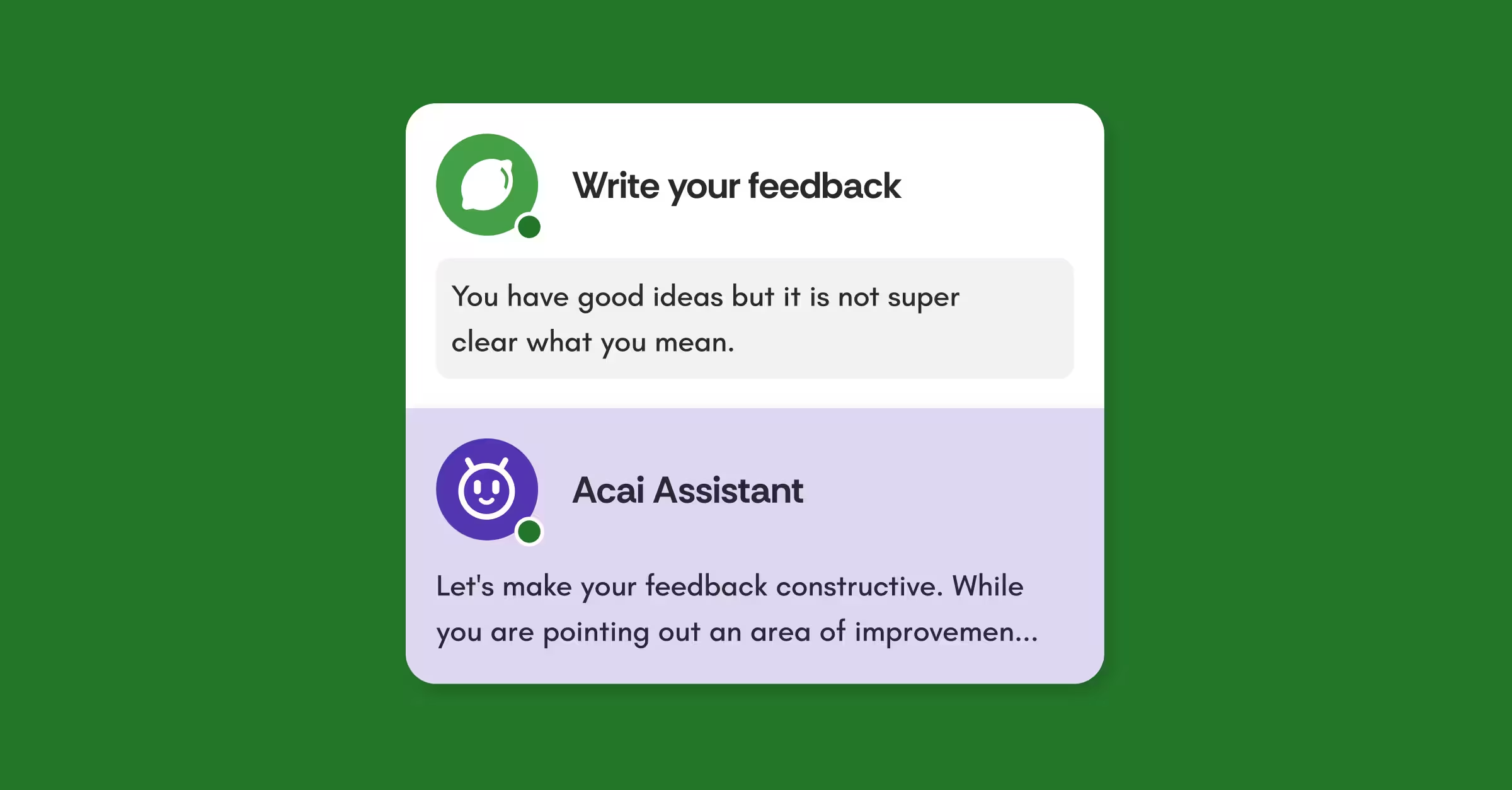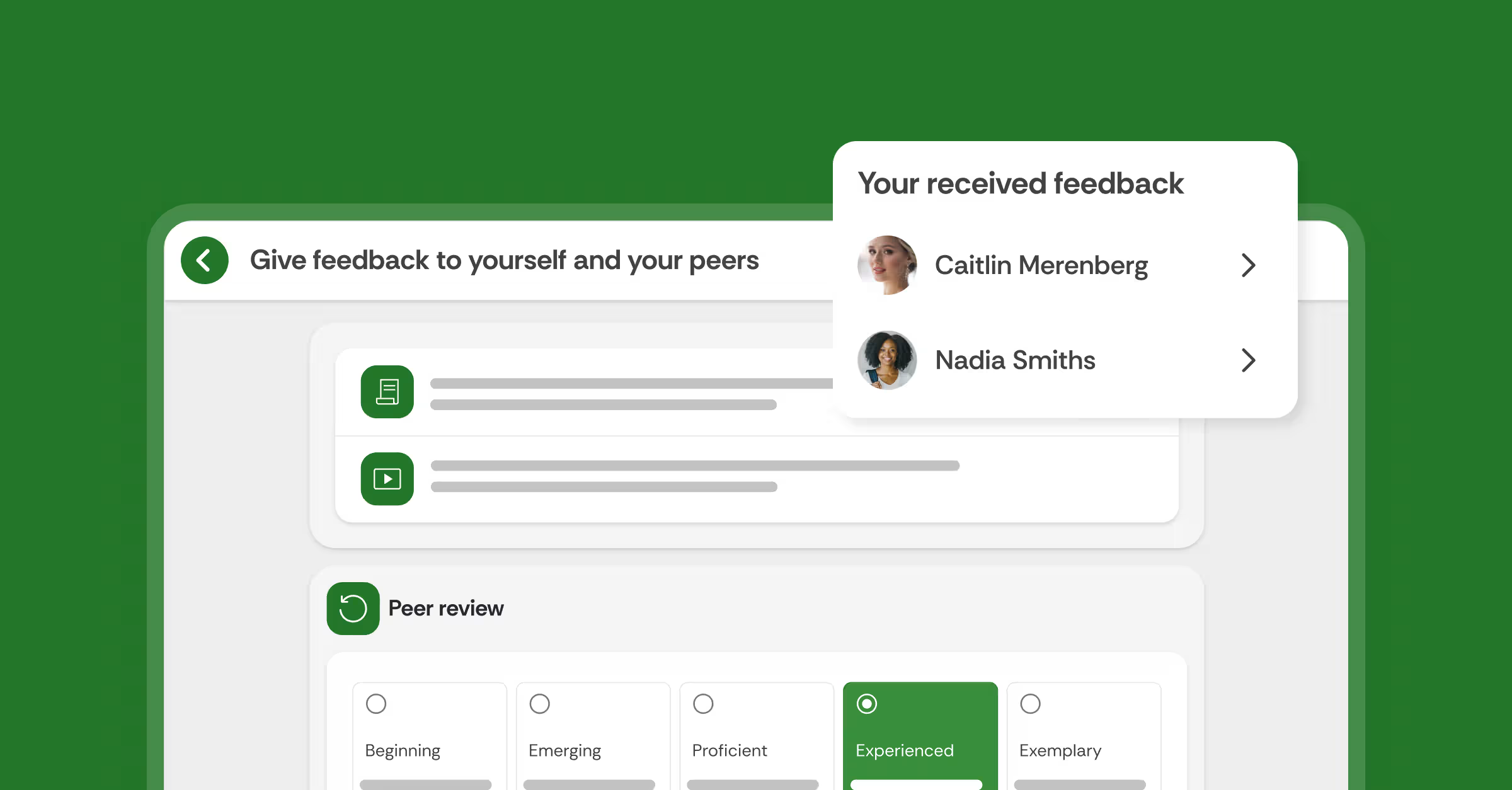Canadian higher education post-pandemic: investing in a quality, inclusive, and flexible education
Achieving higher quality education with innovation has always been a pillar in Canadian higher education. As stated in the Canada’s Fundamental Science Review published in 2017:
“We believe Canada should aim to become the best-educated nation in the world with a reputation for generating startling discoveries across a range of scientific disciplines, breakthroughs in applied natural, health, and social sciences, and transformative insights from the humanities.”
The pandemic pivot over the past 2+ years has indeed highlighted the goals mentioned above, as well as revealed new development trends towards the vision of high quality education. The most prominent trend is the switch from emergency, response based actions to strategic, long-term strategies. Furthermore, institutions work to facilitate a learning environment where students are the knowledge owners, instructors become the facilitators, and faculties remain agile and flexible to any changes needed. Crucially, pedagogical technology is recognised to play a role in supporting educators drive positive educational shifts.
In this article, we want to explore in-depth the educational movements that are taking place now and in the future from Canadian perspectives, and how edtech companies like FeedbackFruits can assist institutions in reaching these strategic goals.

The top trends that drive Canadian higher education
Trend 1: Witness an increase in internationalization
International orientation has been established as one of the key strategic goals in Canadian higher education from the 1980s. Since then, Canada has stood with the US, UK, and Australia as the renowned destinations for international education.
Despite a decrease during the pandemic, the influx of international students is estimated to increase to 3 million by 2030 [1]. This continuous growth undoubtedly brings out great revenue, yet presents institutions with several challenges and needs to be addressed. First, is the increasing competition with not only the major countries but also with other rising candidates such as Singapore, China, and many others. Internationalization also prompts institutions to ensure an universal, and responsive curriculum that accommodates varied needs, backgrounds, and cultures. Failure to ensure international study content is likely to lower the interest of international students, leading to lower retention, enrolment rates. Online, hybrid, and blended courses will continue to be the preferable modality despite the gradual return to on campus classrooms [2]. Many students have come to enjoy the flexibility offered by diverse course models, thus expressing more motivation, and engagement to study. Incorporating more online learning elements is now a major goal for many Canadian institutions.
Trend 2: Adopt inclusive pedagogy to create equitable, responsive learning environment
The need to cultivate an inclusive, equitable, and accessible learning environment in Canadian education has been driven by different motives, namely:
- The revitalisation of minority language, which aims to protect and maintain the existence of Indigenous languages as a means of communication and as a connection to culture [3].
- The need to ensure learners’ access to all official languages, by offering multilingual instructions, programs, as well as investing in professional development of indigenous language instructions [3].
- Interest and enrollment in French immersion programs are expanding, demanding a bilingual approach to the curriculum.
- Internationalization presents a diverse student body with diverse needs, abilities, and backgrounds, highlighting the need for personalized learning approaches.
- Students’ learning expectations have shifted greatly to require more flexible course delivery, skills development, and micro-credentials [4].
Canada has made significant progress towards inclusive education over the last few decades. Inclusive Education Canada (IEC) was launched as a separate organization by Inclusion Canada in 2009, with the commitment to quality, inclusive education for all students in Canada. Universities collaborate with community organizations, business leaders and governments to ensure an accessible, responsive learning environment by incorporating inclusive pedagogy into course policies, materials, activities & assessment, and technology use.
Trend 3: Enhance education with technological innovation
The implementation of technology further realizes the potential of education. Recent years witnessed the ever-increasing use of technology in various aspects of education, helping to enhance teaching and realize students’ learning potential. Tools developed based on artificial intelligence and machine learning help to make assessments and learning more automatic, promoting a digital, and often remote, learning culture.
Since 2000, technological changes like mobile devices spurred new ways of digital learning, so that even before the pandemic, education has taken place in digital contexts. For example, a national survey before the pandemic points out that 79% of post-secondary education in Canada offer programs that could take place online [5]. Nevertheless, in the post-pandemic era, digital and remote learning becomes significantly more prevalent. The inaccessibility of on-campus facilities due to lockdowns shifted a large portion of learning online. Thanks to the flexibility of technology-enhanced remote learning, this shift continues even after lockdowns. Now, it is estimated that each year, Canadian higher education students take approximately 1.5 million credited courses online [1]. This tremendous number implies that technology-enhanced learning has emerged as a prominent trend in Canadian education, and will likely continue into the future, leading to more practices of hybrid learning.
The future of technology-enhanced education is a promising one. For instance, artificial intelligence will continue to automate learning and assessment procedures; gesture recognition techniques will help to integrate more visual and aural components into the learning process; and learning will become more personalized, allowing more individualized and self-adaptive learning experiences [1].
Trend 4: Focus on soft skill developments and micro-credentials
Finally, there is also a growing focus on developing soft skills, which is closely related to the changing demands of the workplace. Nowadays, machine learning and artificial intelligence have made many tasks traditionally performed by humans automatic. As such, workplace demands for these technically narrow tasks drop, and demands for more interpersonal and social skills increase [4]. For example, teamwork ability, creativity, interdisciplinary knowledge, interpersonal communication, and cross-cultural competencies. The demands for such soft skills urge educational institutions to repackage traditional programs with a focus on human skills and interdisciplinarity, equipping students with necessary soft skills and preparing them for future work.
For example, in response to this trend, many educational institutions now design curricula that are more interdisciplinary and do not solely based upon credit hours [4]. A variety of learning experiences, including community-based research and workplace experiences, are now integrated into training programs, improving students’ career-ready skills. Another example is the development of programs focusing on micro-credentials. By definition, a micro-credential is a certificate of “assessed capability that is alternate, additional, or an element of formal education qualification” [6]. These certificates can be showcased on digital platforms, representing the acquisition of specific work-related skills.
To conclude, approaches like multidisciplinary curriculum design and micro-credentials help to improve students’ transition into the workforce by preparing them with necessary work-related skills. It is likely that these approaches will cover more skills in the future and become a more outstanding trend in Canadian higher education.
The aforementioned trends, though promising, are by no means easy to address, as acknowledged by many academic technologists. As part of our mission to support institutions worldwide to drive educational transformation, FeedbackFruits wishes to assist Canadian faculties in creating a high quality learning environment which drives engagement, meaningful interactions, and lifelong learning.
FeedbackFruits’ technological solutions are developed to accommodate varied pedagogical approaches, and enhance different course modalities (in-person, online, hybrid, or blended). We constantly develop and introduce functionalities that help faculty create a personalized, inclusive learning experience. For example, the French language mode is our latest step in the effort to make FeedbackFruits accessible to more instructors and students.
Most importantly, FeedbackFruits is proud to have been collaborating with Queen’s University and contributing to the achievement of their strategic educational goals.
Addressing the key educational trends at Queen’s University
Located in Kingston, Ontario, Queen’s University is one of the most renowned public research universities in Canada. Queen’s University is home to more than 25,000 undergraduate and graduate students, and more than 5,000 faculty and staff. Queen’s University has long been an enthusiastic supporter of higher education innovation, which manifests in their strategic goals, including internationalization, innovative partnerships, entrepreneurship courses, and micro-credentials.

First of all, in recent years, Queen’s University has become increasingly more international, with 17% of students coming from abroad [7]. Internationalization brings a diverse student population and helps promote cross-cultural collaborations among students. Moreover, Queen’s University also strives to build national and international connections and partnerships with various communities and governmental and industrial partners. By doing so, Queen’s University actively participates in transferring research outputs among institutions and translating scientific knowledge to the public. For example, Dr. Arthur McDonald, Nobel Laureate, leads researchers of the Canadian arm of an international consortium to create a low-cost ventilator during the pandemic [7].
Besides increasing internationalization and growing partnerships, Queen’s University is also an innovator in teaching and learning practices. There are dozens of entrepreneurship and innovation courses offered by Queen’s University, providing learners on-campus and online with practical and interdisciplinary learning experiences [8]. These courses include entrepreneurship courses for all students, entrepreneur certificates, and entrepreneurship courses designed for students of specific disciplines such as Engineering and Commerce. To promote diversity and inclusion, Queen’s University also has events focusing on relatively underrepresented groups, for example, the virtual café event for women entrepreneurs [9].
In addition, Queen’s University offers plenty of micro-credentials focusing on specific career-relevant skills, such as High Performance Teamwork and Starting Your Innovation Story. These micro-credential courses are smaller compared to regular courses and allow for self-paced and personalized learning. Through these courses, learners acquire skills necessary for the job market and are awarded with credentials from Queen’s University.
Furthermore, Queen’s University recognizes the potential of technology-enhanced education, and establishes partnerships with the education technology industry. Our collaboration with Queen’s University, for example, demonstrates how the institution actively harnesses the potential of technological innovation to advance educational goals.
Queen’s University and FeedbackFruits collaboration to drive the strategic goals
At Queen’s University, there has been a long-standing recognition of, and need for, effective group work and peer and self assessment. While group work helps foster collaborative learning and stimulates real world skills, peer and group feedback allows students to demonstrate deeper understanding of content and develop the ability to critically evaluate their peers.

The abrupt pandemic pivot to remote learning required the Queen’s team to seek a “more robust teaching tool than the one they are currently using”, said Selina Idlas, Educational Technologies Innovation Specialist at Queen’s Center for Teaching and Learning. Their current tools for peer feedback and group evaluation didn’t meet their needs due to poor integration into Brightspace, and user-unfriendly interface.
“[The current tools] were very labor intensive for instructors and other educational support professionals.” - Selina Idlas
There was then a great need for a suitable pedagogical solution for streamlined peer and group assessments, while also simplifying course management. After an extensive search and review of several solutions, the Queen’s team set eyes on the FeedbackFruits assessment tools. FeedbackFruits Peer Review (PR) and Group Member Evaluation (GME) met all the requirements developed by the Queen’s team, which were: seamless LMS integration (Brightspace), single sign-on (SSO), Gradebook synchronization, large group management capability, timely support, user-friendliness, and consistent user experience.
After discussing the opportunity of adopting these two tools for peer feedback, assessment, and group work, Queen’s University and FeedbackFruits agreed on a 10-month pilot starting from June 2020 til April 2021.
The successful pilot has prompted Queen’s University to enter a 1-year partnership with FeedbackFruits, which has been renewed for another 3 years till 2023. This decision has been driven by FeedbackFruits team’s efforts in contributing to Queen’s teaching and learning innovation goal.
To ensure a smooth transition to Peer Review and Group Member Evaluation for effective technology adoption, the Queen’s Centre for Teaching & Learning worked closely with the FeedbackFruits team to provide ample support for instructors.
“We have a really robust support model to get FeedbackFruits tools launched as quickly as possible and to make that transition happen.” - Selina Idlas
For Danielle D’Souza, Educational Support Specialist at Queen’s, this support model was a huge benefit for her. Danielle needed to help an instructor to design and facilitate a two-part assignment where students participating in the first part would get reviews from students participating in the second part. This assignment was challenging and “complicated” according to Danielle. However, she reached out to the FeedbackFruits team for support and received detailed instructions on exactly “what to do, which settings to use in the tools”.
“I just want to give a huge kudos to the FeedbackFruits team because they have been incredible with their support in every situation.” - Danielle D’Souza
This robust support model also involves frequent training workshops to help instructors get familiar with FeedbackFruits solutions.
Not only does the Queen’s team engage in the implementation process, but they also actively contribute to the tools development and improvement, by pinpointing several feature requests to be included in our tools. Thanks to the institution’s valuable input, we were able to introduce a number of upgrades, such as: Adding captions in .srt, Individual student Deadline extensions; Manual override of grades; Preview assignment as student; and Steady group synchronization. While the first two features aim to create an inclusive, personalized, and accessible learning environment that addresses all students’ needs, the latter two support instructors optimize the course design. Realizing the potential of other FeedbackFruits’ solutions, the Queen’s team adopted Interactive Study Materials, and Discussion tools for student engagement, and interactions.
Speaking of the collaboration with Queen’s, Ewoud de Kok, CEO of FeedbackFruits, commented:
“Canadian education has an immense potential to lead the rest of the world with inclusive learning experiences where each student has access to high quality learning, and different cultures and ideas are celebrated. As FeedbackFruits, we are fully committed to supporting Queen’s University and all other institutions in Canada in building the future of flexible education with focus on pedagogy at scale."
References
[1] Ontario's Distance Education & Training Network. (2015). The future of higher education: A Canadian View. Link.
[2] EDUCAUSE. (2022). 2022 students and technology report: Rebalancing the student experience.
[3] EdCan Network. (2019, June 20). Trends in Canadian education 2018-2019. https://www.edcan.ca/articles/trends-2018-2019/
[4] MacDonald, M. (2019). 7 university leaders contemplate the future of higher education in Canada — University affairs. Link.
[5] Brennan, J., Deer, F., Desai Trilokekar, R., Findlay, L., Foster, K., Laforest, G., Wheelahan, L., Wright, J. M. (2021). Investing in a Better Future: Higher Education and Post-COVID Canada. Royal Society of Canada. Link.
[6] Shao, Z. (2022). Analysis of trends in education for Canada. Advances in Social Science, Education and Humanities Research. Link.
[7] Times Higher Education. (2022, October 4). Queen’s University. Times Higher Education (THE). Link.
[8] Queen's University. (n.d.). Courses in entrepreneurship at Queen's | Dunin-Deshpande Queen's innovation centre. Link.
[9] Queen's University. (n.d.). Virtual cafe for women entrepreneurs: Let's talk goal setting! Link.
















![[New] Competency-Based Assessment](https://no-cache.hubspot.com/cta/default/3782716/interactive-146849337207.png)










